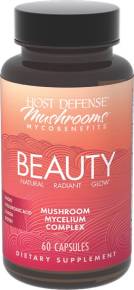Members of the food industry—producers, retailers, and nonprofits—celebrate Non-GMO Month every October by working to further the cause of protecting and preserving foods and other products that have not been genetically modified.
According to polls, 53 percent of Americans don’t want to buy crops and products that contain genetically modified organisms. GMOs are made when DNA from one species is injected into another species to create plant or animal combinations that don’t occur naturally or by means of traditional cross-breeding methods.
The problem is, it’s often impossible to know whether a product has been genetically modified. That’s a main reason the Non-GMO Project established Non-GMO Month. As the Non-GMO Month website states: “Non-GMO Month is an opportunity to coordinate our voices and our actions, so that we can stand up loudly and clearly for our right to know what’s in our food, and to choose non-GMO.”
Here are a few of the ways industry partners of the Non-GMO Project are standing up for those rights.
Proposition 37: When they go to the polls November 7 to vote for state and federal candidates for office, California residents will be asked to give a yea or nay to a ballot initiative that would require that genetically modified foods be marked as such on their labels. The effort is being supported by hundreds of partners, including individuals, nonprofits, consumer advocates, the healthcare community, and businesses in the natural foods and products industry. For a list, visit justlabelit.org.
Retailer events: Natural foods markets and shops around North America have been hosting events to mark Non-GMO Month. To name just a few examples: The Gentle Rain in Stratford, Ontario, is offering samples of verified Non-GMO products throughout the month; Nature’s Oasis in Durango, Colorado, is presenting information on GMO-free eating; the La Montanita Coop In Santa Fe, New Mexico, held a Non-GMO Project Community Day with music, barbecue, and raffles; and many stores are sending a percentage of one day’s proceeds to the Non-GMO Project. You can find a calendar of events at the Non-GMOMonth.org.
Spreading the word: Nonprofits that work to advance the cause of non-GMO foods and the labeling of genetically modified foods have also been busy this month. Many have sponsored screenings of the film Genetic Roulette: The Gamble of Our Lives, Jeffrey M. Smith’s documentary about the health dangers of GMOs. And, to offer just one more example, GMO-free Prescott, a nonprofit in Prescott, Ariz., was on hand at the Prescott Farmer’s Market October 13 to ask shoppers to pledge to eat one GMO-free meal per day.
What can individuals do? There’s still time to celebrate Non-GMO Month—and why not extend it into the rest of the year? For some ideas on ways you can learn more about and promote the cause, check out WholeSoy Yogurt’s blog. Here are a couple of the blog’s suggestions to get you started:
· Tell your retailers how you feel about the importance of non-GMO foods, and keep buying and requesting those foods.
· Write to your elected officials urging them to support labeling of genetically modified crops and products.
SOURCES
"About Non-GMO Month”; “Events,” www.nongmomonth.org
“Partners" justlabelit.org
“Take Action Guide for Non-GMO Month 2012,” wholesoyco.com, 10/1/12
“Vote for the Dinner Party” by Michael Pollan, New York Times Magazine, 10/10/12



